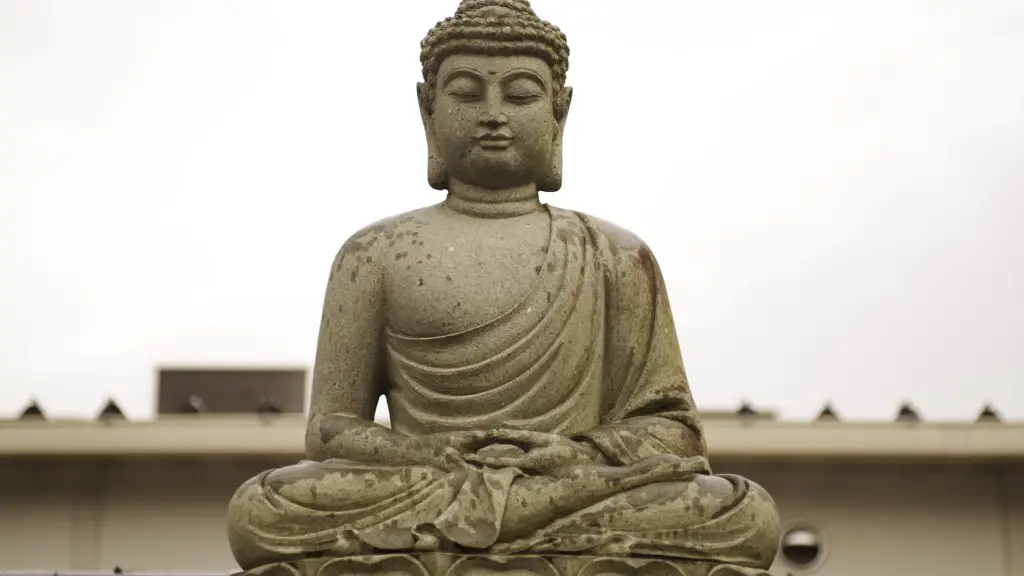Buddhism is a religion that was founded by Siddhartha Gautama in the fifth century BCE. The Buddhist tradition teaches that there is suffering in life, but that this can be alleviated by following the path of the Buddha. Buddhists seek to develop compassion and wisdom in order to end the cycle of rebirth and attain Nirvana.
The word “Buddhism” comes from the root “budh,” which means “to wake up.” At its core, Buddhism is a religion about waking up to the truth of our lives. It’s about seeing things as they really are, not as we wish them to be.
The heart of the Buddha’s teachings lies in what’s called the Four Noble Truths. The first truth is that life is suffering. The second truth is that this suffering is caused by our own desires and attachments. The third truth is that we can end our suffering by letting go of our desires and attachments. And the fourth truth is that the path to liberation from suffering is the Eightfold Path.
The Eightfold Path is a set of eight principles that guide us to an enlightened life. They are:
1. Right Understanding
2. Right Thought
3. Right Speech
4. Right Action
5. Right Livelihood
6. Right Effort
7. Right Mindfulness
8. Right Concentration
Buddhism is not a belief system in the same way that Christianity or Islam is. It’s not about accepting certain tenets of faith on blind faith. Instead, it’s a religion of personal experience and experimentation
What are the 3 main beliefs of Buddhism?
Buddhism is a religion based on the teachings of Siddhartha Gautama, who was born in India in the 6th century BCE. The main principles of Buddhism are karma, rebirth, and impermanence. Buddhism teaches that our actions have consequences in this life and in future lives, and that we can be reborn into different forms depending on our karma. This religion also emphasizes the transitory nature of all things, including our own lives.
Buddhism is a tradition that is focused on spiritual liberation and not on theistic religion. The Buddha himself rejected the idea of a creator god and Buddhist philosophers have argued that belief in an eternal god is nothing but a distraction for humans seeking enlightenment.
What does Buddhism literally mean
Buddhism is a religion and philosophy that developed from the teachings of the Buddha. The Buddha was a teacher who lived in northern India between the mid-6th and mid-4th centuries BCE. Buddhism teaches that everyone has the potential to attain nirvana, or enlightenment, and that the way to do this is through ethical living, meditation, and wisdom.
Buddhism is a religion that does not believe in any kind of deity or god. Instead, they believe in enlightenment, which is the ultimate goal. There are supernatural figures in Buddhism that can help or hinder people on the path to enlightenment, but ultimately it is up to the individual to achieve it.
What is Buddhism vs Christianity?
There are some inherent and fundamental differences between Buddhism and Christianity, with one significant element being that Christianity is monotheistic and relies on a God as a Creator, while Buddhism is generally non-theistic and rejects the notion of a Creator God. However, both religions do share some commonalities, such as the importance of altruism, compassion, and living in harmony with others.
Buddhists may celebrate Christmas in their own way, but they still acknowledge and respect the holiday’s Christian roots. For Buddhists, Christmas is a time to reflect on Jesus Christ’s role as an avatar of being blessed to our beloved Earth. In this way, Buddhists see Christmas as a time to be grateful for the blessings in our lives and to focus on making the world a better place for all.
Do Buddhists believe in heaven?
In Buddhism, there is no concept of punishment or reward for our actions. Instead, there is the concept of karma, which is the illusory results of our thoughts, words and deeds. Karma is not decided by a divine being, but is something that we create for ourselves through our actions.
In Buddhist teachings, life and death are seen as a continuum, with consciousness (the spirit) continuing on after death and potentially being reborn. Death, then, can be seen as an opportunity for liberation from the cycle of life, death and rebirth.
What is the main purpose of Buddhism
Nirvana is the goal of Buddhism and is believed to be attainable only with the elimination of all greed, hatred, and ignorance within a person. Nirvana signifies the end of the cycle of death and rebirth.
The Middle Way is the Buddhist way of life which encourages self-development and progression through the Noble Eight-fold Path. This path comprises of Right Understanding, Right Thought, Right Speech, Right Action, Right Livelihood, Right Effort, Right Mindfulness and Right Concentration. The Middle Way is a balance between the extremes of self-indulgence and self-mortification and encourages followers to live a life of moderation and compassion.
Is Buddhism a faith or religion?
Buddhism is a religion that originated in India in the 6th century BC. It is a non-theistic religion, which means that it does not believe in a creator God, unlike theistic religions such as Christianity. Buddhism was founded by Siddhartha Gautama (also known as Buddha), who, according to legend, was once a Hindu prince.
The term buddhavacana refers to the words of the Buddha, which are seen as the embodiment of his teachings. These texts are accorded a special status as sacred scripture, and are seen as a key component of the Dharma, the teachings of the Buddha. Buddhavacana texts include both the earliest scriptures, which date back to the time of the Buddha, and later texts composed by his followers. The buddhavacana tradition also includes commentaries and other works that interpret the scriptures, as well as devotional texts that focus on the Buddha himself.
Do Buddhists drink alcohol
Buddhism has always been against the consumption of alcohol since early times. This is because alcohol consumption can lead to addiction and other problems. Buddhism teaches that addiction is a form of suffering and that it is important to be mindful of the things we consume.
In Buddhism, karma is not just about this life, but extends to future lives as well. Bad actions committed in a previous life can follow a person into their next life and cause bad effects. Even an Enlightened One is not exempt from the effects of past karma.
Do Buddhists get along with Christians?
I agree with Stephen Lahey that Christians and Buddhists have incompatible beliefs. Christians believe in one God who created the universe and offers salvation to those who follow Him. Buddhists, on the other hand, believe in reincarnation and that enlightenment and nirvana can be achieved through their own efforts. As a result, these two groups of people are not likely to find common ground on their beliefs.
The book raises the fascinating question: How could Jesus, living 500 years after Buddha and 3,000 miles away, embody teachings so similar in nature to his predecessor? Borg said some historians believe that Buddhist principles had filtered through the Roman Empire by the time of Jesus.
It is fascinating to think about how Jesus’ teachings may have been influenced by Buddha, who lived 500 years earlier and 3,000 miles away. Some historians believe that Buddhist principles had made their way to the Roman Empire by the time of Jesus, which may explain the similarities between their teachings. This is a fascinating topic to explore and I’m curious to learn more about it.
Was Jesus influenced by Buddhism
It is interesting to note that although many modern parallels have been drawn between the teachings of Jesus and Buddha, these comparisons only emerged after missionary contacts in the 19th century. This suggests that there is no historically reliable evidence of contacts between Buddhism and Jesus. It is possible that the similarities between their teachings are simply a result of coincidence, or that they both independently arrived at similar conclusions about the nature of life and spirituality. Whatever the case may be, it is clear that the influence of Buddha on Jesus, and vice versa, is something that cannot be definitively proven.
These are five of the most serious offences in Buddhism, and are sure to result in bad karma. Avoid them at all costs!
Warp Up
Buddhism is a religion and philosophy founded in India by Siddhartha Gautama Buddha. The word Buddha means “awakened one” or “the enlightened one.” Buddhists follow the teachings of the Buddha and strive to live a moral life, based on the Four Noble Truths and the Eightfold Path.
There is no definitive answer to this question as Buddhism is a complex religion with many different schools of thought. However, in general, Buddhism teaches that the key to liberation from suffering is to develop wisdom and compassion. Through following the Buddha’s teachings, practitioners can achieve nirvana, or a state of perfect peace and freedom.


